TMT Labeling Proteomics Service
- Extract total proteins from cells, tissues, or biofluids, ensuring sample integrity.
- Digest proteins into peptides using trypsin, followed by isotopic labeling with TMT reagents.
- Mix labeled peptides and fractionate them using high-performance liquid chromatography (HPLC).
- Perform high-resolution mass spectrometry to identify and quantify proteins.
- Analyze data using specialized software, providing detailed protein expression reports.
- Proteomics Research: Uncover protein networks and functions.
- Disease Biomarker Discovery: Identify reliable diagnostic and prognostic markers.
- Drug Development: Understand drug mechanisms and targets.
- Microbiology: Analyze microbial responses and adaptations.
- Agricultural Science: Explore molecular mechanisms in plants and crops.
MtoZ Biolabs is a trusted global provider of proteomics and mass spectrometry (MS) services, dedicated to delivering high-quality solutions for life science research. Our TMT labeling proteomics service utilizes state-of-the-art mass spectrometry to analyze protein expression and regulation comprehensively, empowering researchers to advance discoveries in disease mechanisms, drug development, and biomarker identification.
Technical Principles
TMT labeling proteomics is a mass spectrometry-based quantitative analysis technique that utilizes isotope tags to label peptides, enabling the simultaneous quantification of up to 18 samples. During the mass spectrometry fragmentation process, characteristic reporter ions of differing masses are generated, and protein expression differences between samples are precisely quantified based on the intensity of these reporter ions.
Analysis Workflow
Our TMT labeling proteomics service offers a comprehensive and reliable approach for high-accuracy protein quantification and profiling. This advanced technique allows for multiplexed analysis, providing deep insights into protein expression and function across different sample conditions. Below is a detailed breakdown of each step in the workflow, where precision and reproducibility are our top priorities.
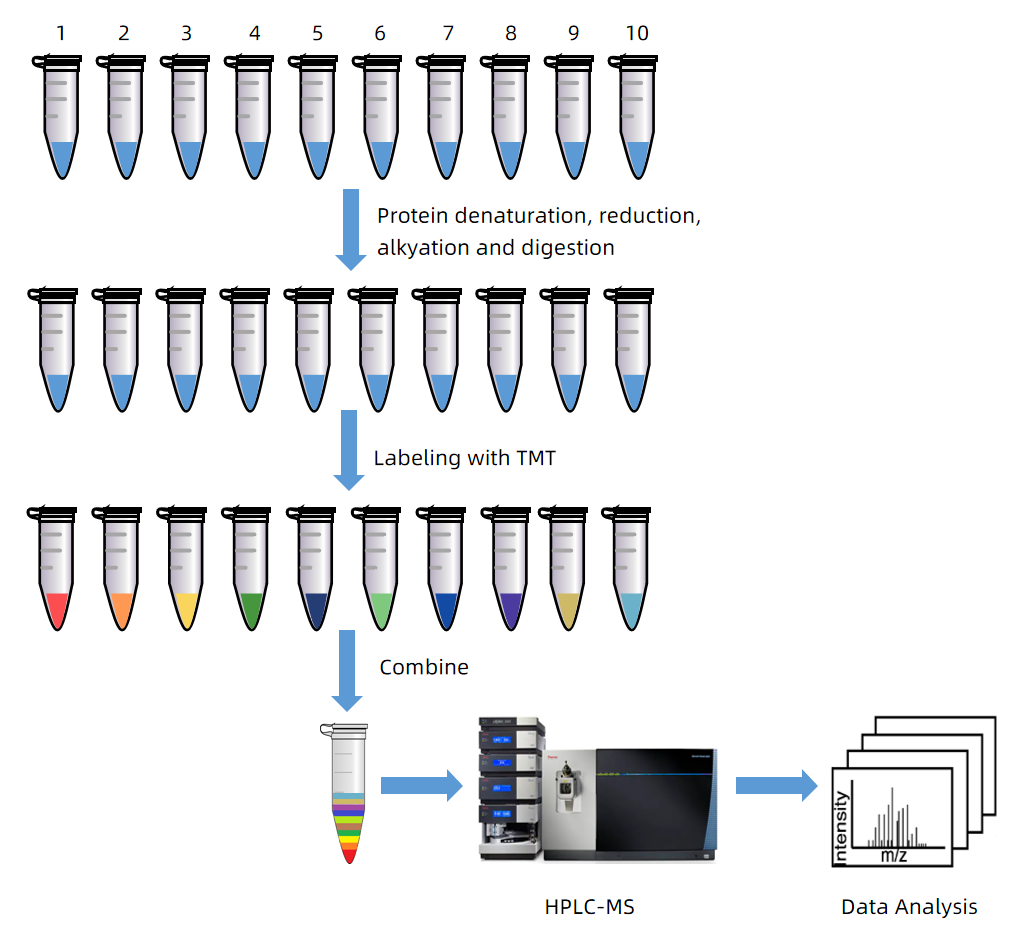
Figure 1. Workflow for Relative Quantification Using 10 plex TMT
Sample Submission Suggestions
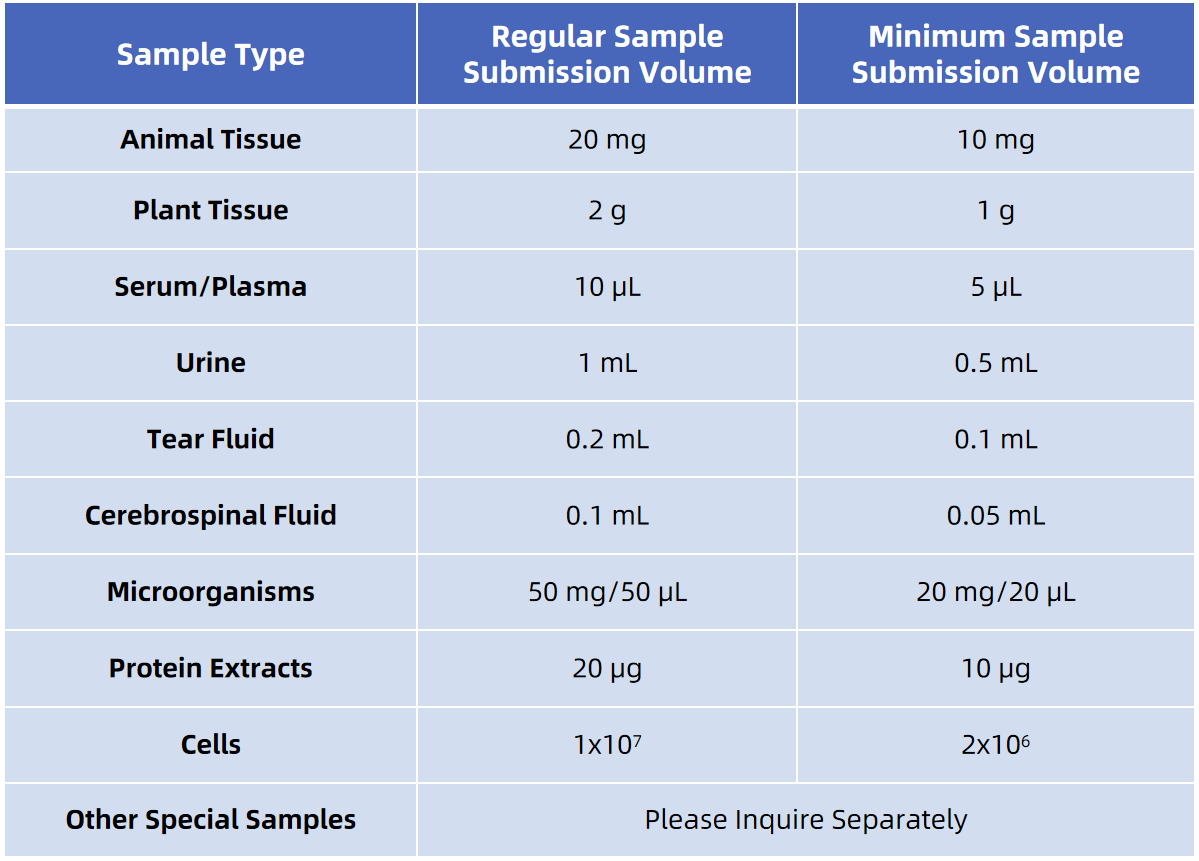
Applications
Our TMT labeling proteomics service is versatile and can be applied across a wide range of fields, offering valuable insights that drive innovation and discovery. Below are some of the key areas where our proteomics service can make a significant impact:
Case Study
Case 1
TMT labeling proteomics was used to analyze the proteome of colorectal cancer tissues and adjacent normal tissues. The study identified 160 upregulated and 79 downregulated proteins, some of which were validated as potential biomarkers in serum samples. These findings provide a strong foundation for early diagnosis and targeted therapy in CRC.
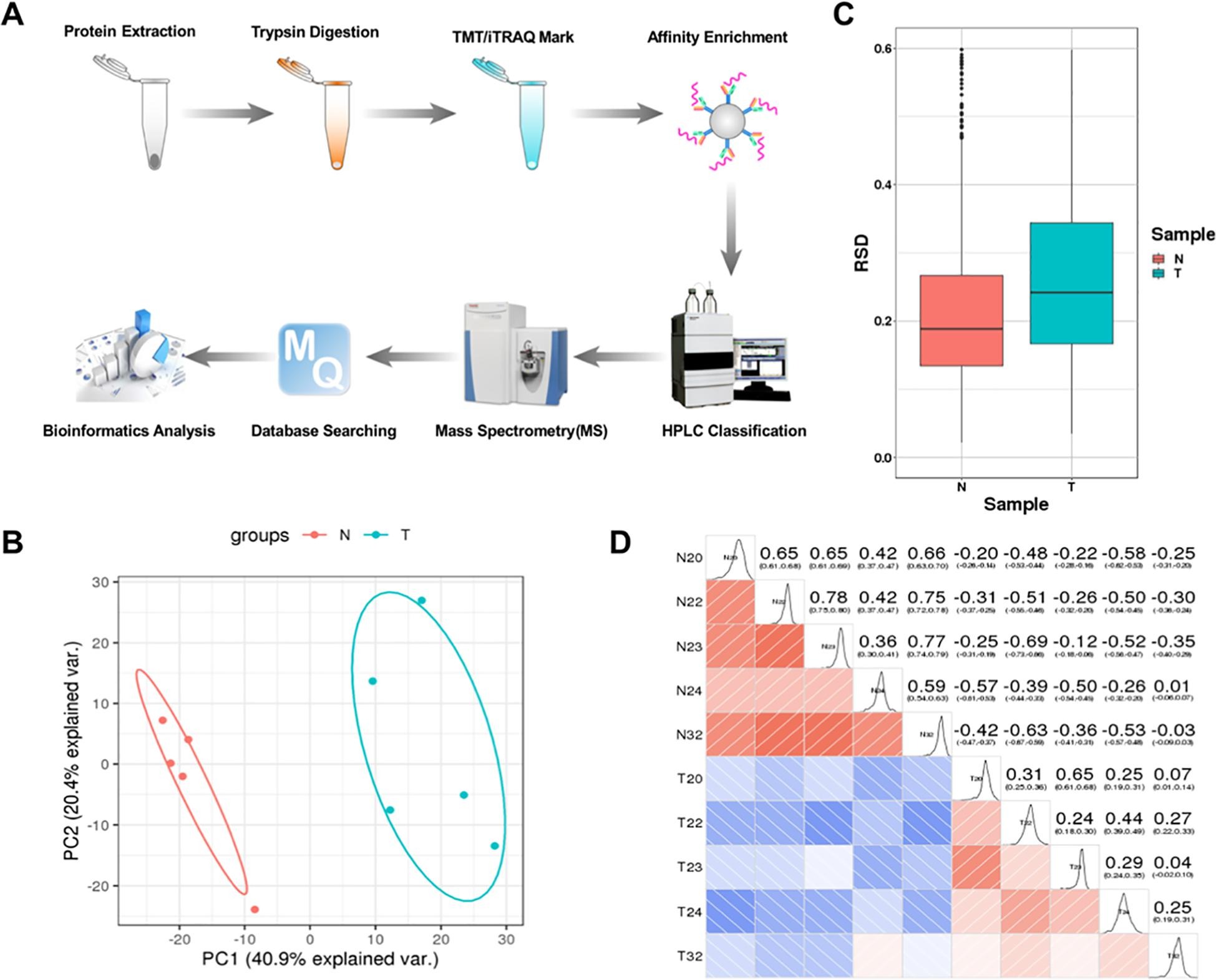
Gong, Q. et al. Clin. Chim. Acta. 2021.
Case 2
Using TMT labeling proteomics researchers analyzed proteomes from the slow-twitch soleus and fast-twitch extensor digitorum longus muscles in young and aged rats. They identified over 5,000 proteins, with significant changes in structural, metabolic, and oxidative stress-related proteins in aged tissues. This work highlights molecular mechanisms of age-related muscle decline and potential therapeutic targets.
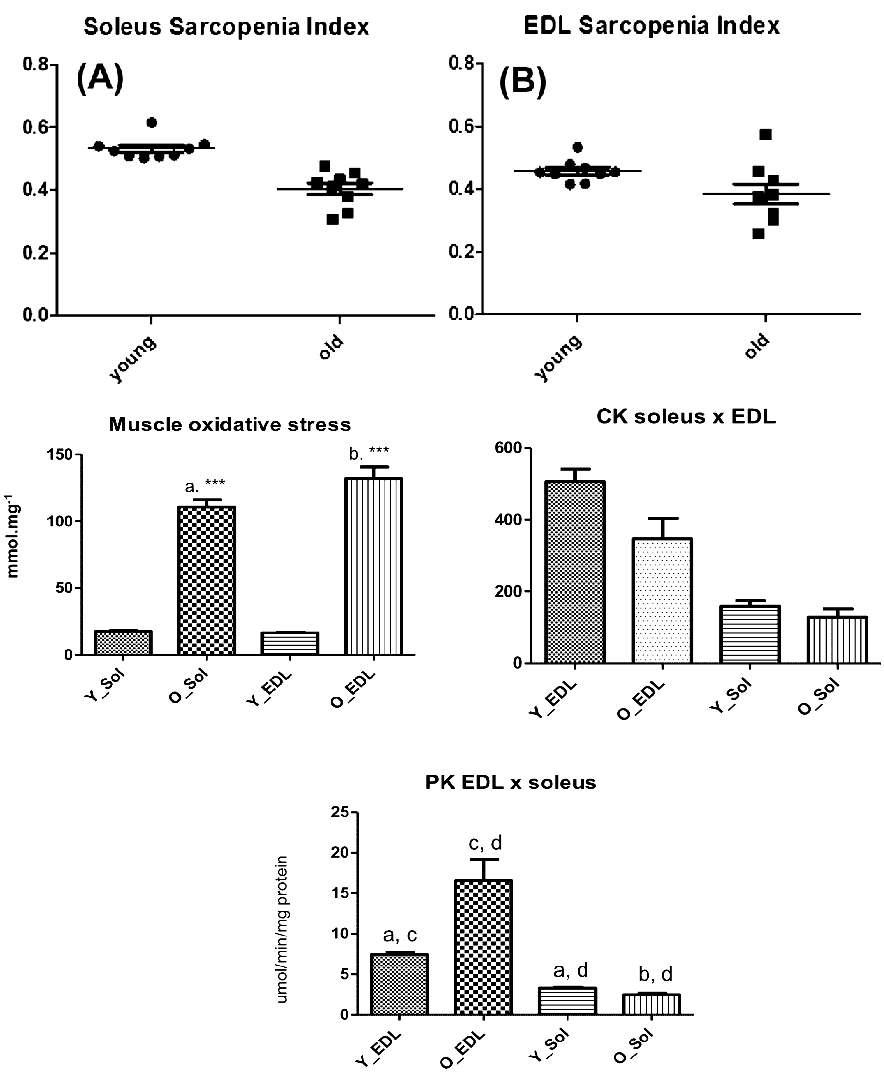
Chaves, D. F. S. et al. J. Proteome Res. 2013.
Case 3
To understand freezing stress, TMT labeling proteomics was used to analyze proteomic changes in Staphylococcus aureus. The study revealed enhanced biofilm formation and altered expression of proteins related to ribosome function, RNA repair, and metabolism. Insights into lysine acetylation and malonylation provided a better understanding of bacterial survival mechanisms under stress.
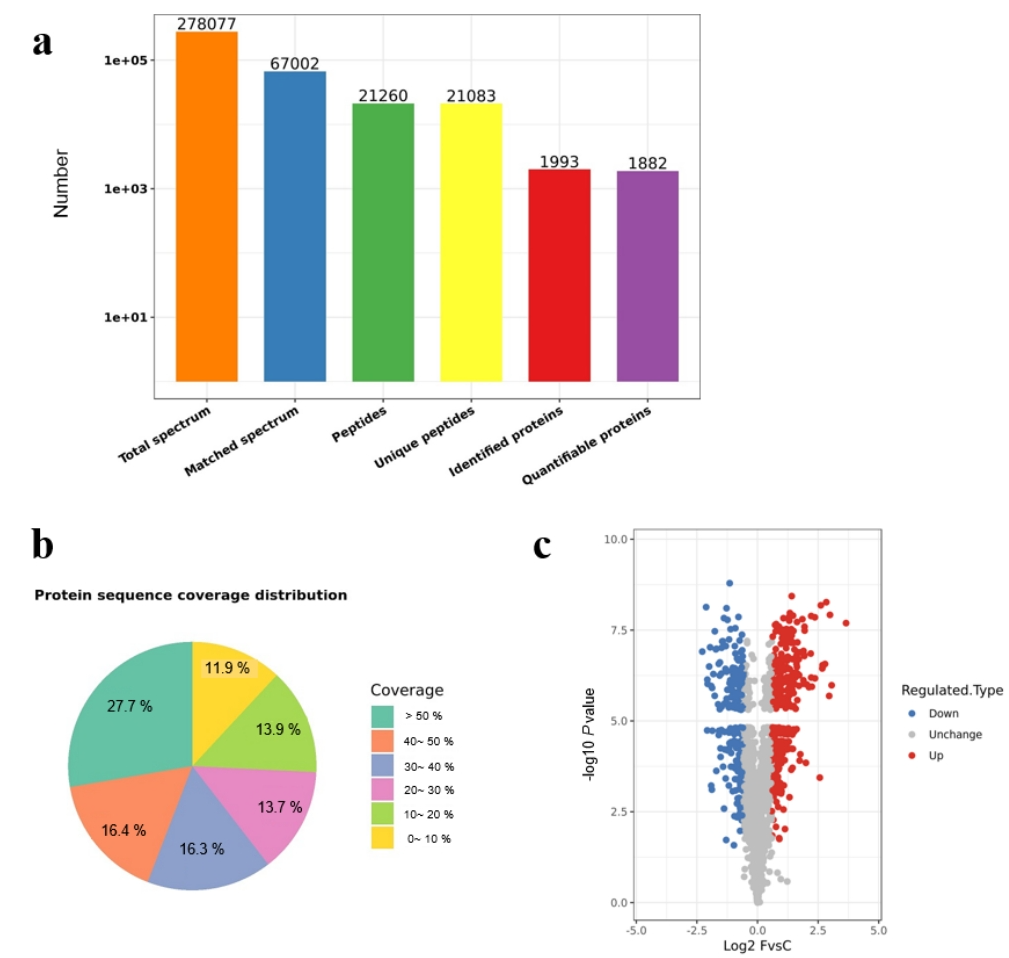
Bai, X. et al. Appl. Microbiol. Biotechnol. 2022.
Case 4
Proteomic differences between two ecotypes of Arabidopsis thaliana were explored using TMT labeling proteomics. The study revealed significant variations in proteins associated with photosynthesis, cell wall integrity, stress responses, and transcriptional regulation. These findings shed light on growth and environmental adaptation mechanisms in plants.
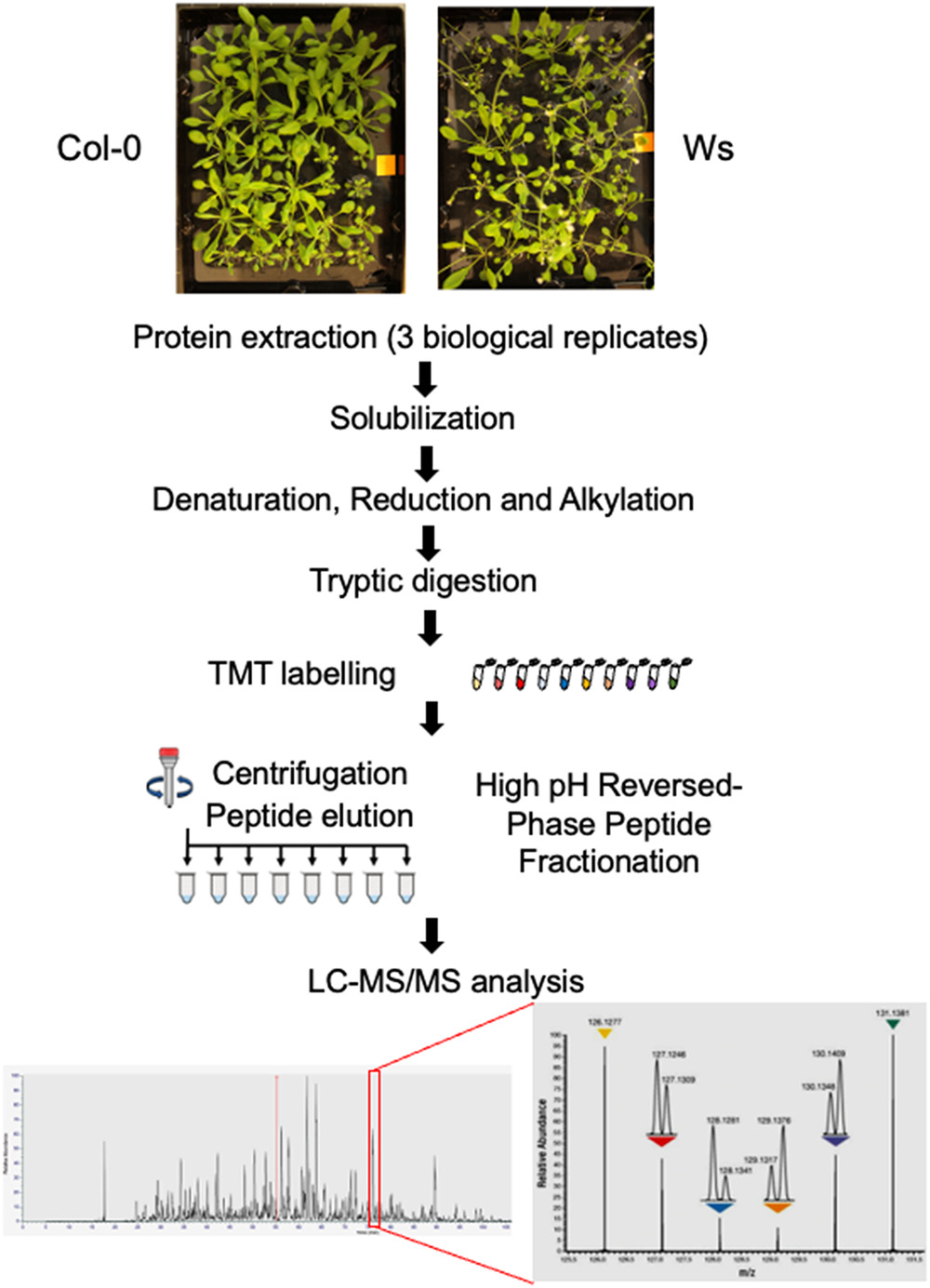
Leschevin. M. et al. Proteomics. 2021.
What Could be Included in the Report?
1. Comprehensive Experimental Details
2. Materials, Instruments, and Methods
3. Total Ion Chromatogram & Quality Control Assessment
4. Data Analysis, Preprocessing, and Estimation
5. Bioinformatics Analysis
6. Raw Data Files
MtoZ Biolabs' TMT labeling proteomics service is designed to provide high-resolution, quantitative insights into protein expression for diverse research applications. Contact us today to learn how we can support your scientific discoveries!
MtoZ Biolabs, an integrated chromatography and mass spectrometry (MS) services provider.
Related Services
Quantitative Proteomics Service
How to order?







